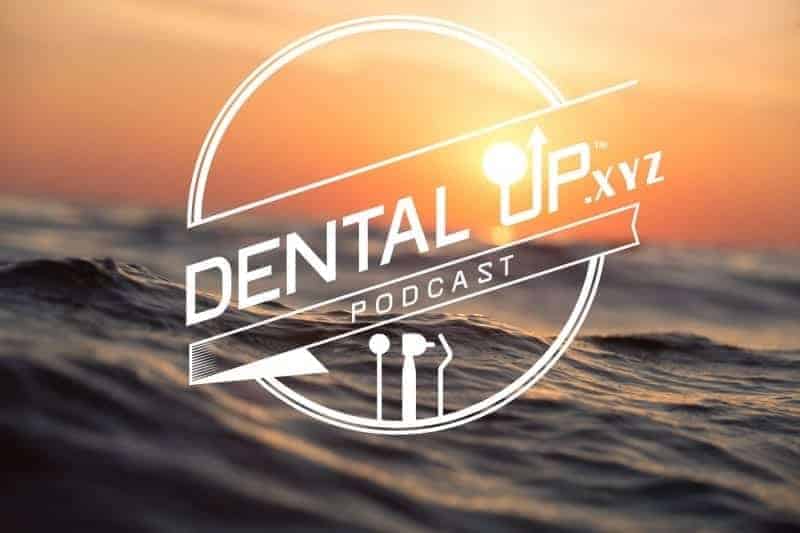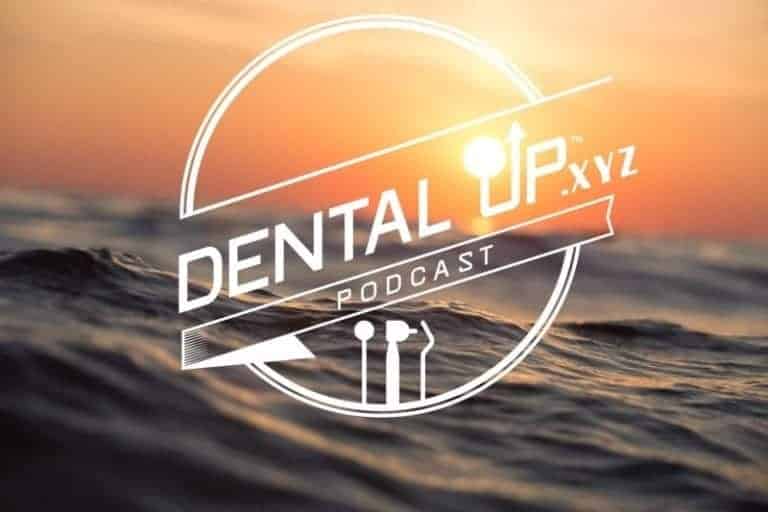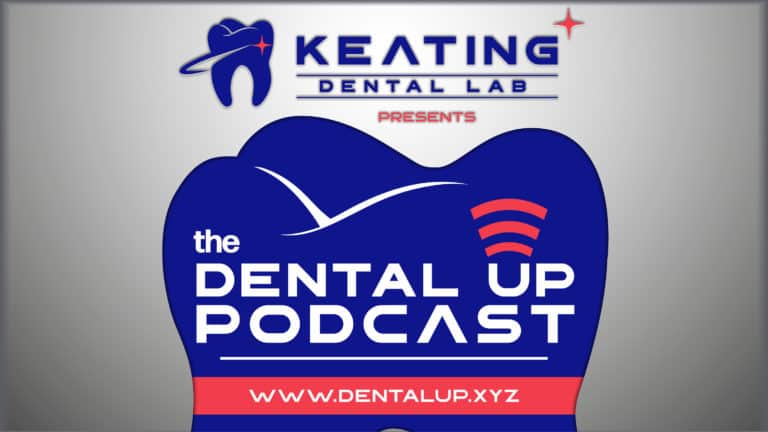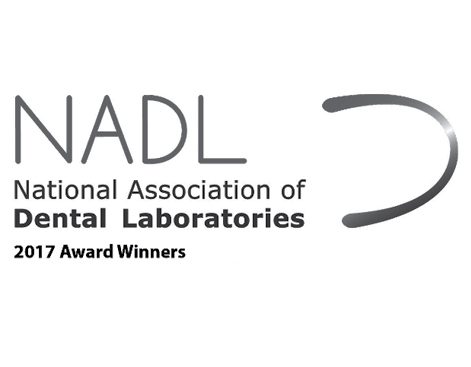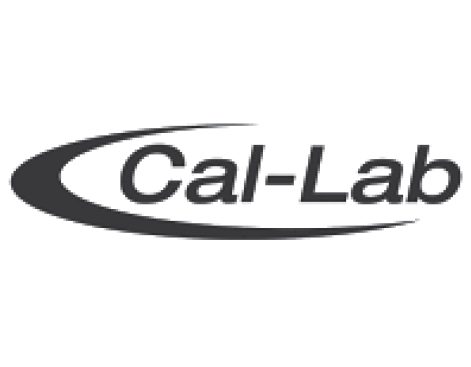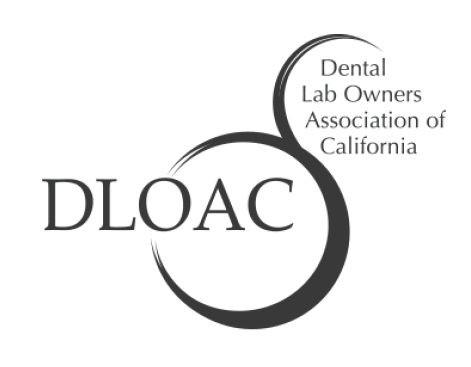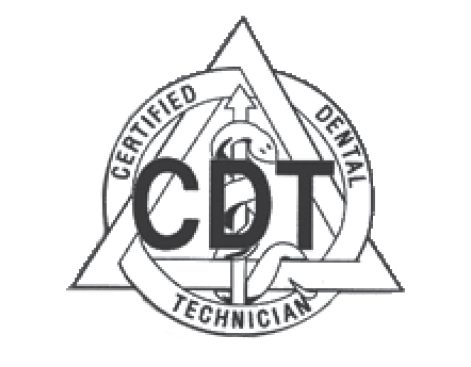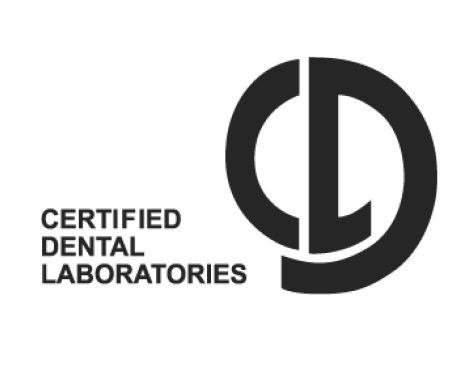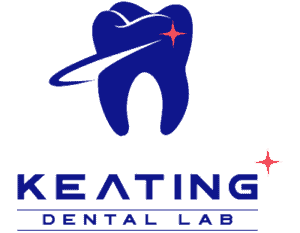| Shaun Keating CDT + Dr. Mark Collins DDS |
Dr. Mark Collins DDS, DABDSM is a dental sleep medicine expert. Dr. Collins is a certified Diplomate of American Board of Dental Sleep Medicine, has lectured both nationally and internationally on dental implants and removables, published many articles in dental journals, recently published a best selling book and is a certified Forensics Consultant.
As a dentist suffering from sleep apnea, Dr. Mark Collins DDS hated wearing the CPAP mask. Spending close to $16,000, Dr. Collins was determined to find the best solution to his problems but was sadly disappointed. Mark underwent a two-year apprentice program under Dr. Edward Spiegle (one of the pioneers in dental sleep medicine) and many years of extensive research. With this research and background in dental sleep medicine, Dr. Collins lectures worldwide on treating patients just like himself.
Dental Sleep Basics Course
Dental Sleep Medicine Basics book
Full Transcription:
Shaun: Hey, everybody. Shaun Keating here. I’m going to welcome you to this week’s episode of the Dental Up Podcast, brought to you by Keating Dental Lab. This week, we’ll be featuring a dentist who’s an expert in dental sleep medicine. He has published many articles in dental journals, recently published a best selling book, has lectured both nationally and internationally on dental implants and removable prosthodontics, and is a certified forensics consultant. Practicing in Forth Mojave, Arizona, please welcome, Dr. Mark Collins, DDS. How’s it going, buddy?
Dr. Collins: Hey, it’s going great. Thanks for the intro, Keith.
Shaun: Oh man. It’s so cool, dude. Heck, I’ve known you for a long time, man. I mean right when I started off in dental town, we got to know each other a little bit, dude. We started doing some work together. I remember we did a big roundhouse. It was like it was scary, because no one … I think you’re like the first doctor to put a case of mine up online. I thank you for that, man. It kind of helped start my career off on that dental town network there. I appreciate that, Marky boy. That was awfully nice of you. Remember that? Doing that case.
Dr. Collins: Oh I remember that case. That was awesome, because I had actually worked with about four or five different labs. Nobody said that they could do this case, and you came back and you were like, “No problem.”
Shaun: Yeah, that was so cool.
Dr. Collins: It was an awesome case.
Shaun: Oh that’s awesome, dude.
Dr. Collins: That was in 2002.
Shaun: Can you believe that? That’s when I started my lab, baby.
Dr. Collins: Really?
Shaun: I think our first dental convention, it was like a seminar that you did, was the first meeting we ever went to. It was out in Las Vegas at the Tuscany Suites in whatever. Thank you for that. I mean you put on a lecture with … I think we had about 50, 75 dentists show up. We brought our-
Dr. Collins: No. No. No, that was 250 dentists.
Shaun: Okay. Was there? That was a lot. I just remember like 50 or 75. I think I got 50 doctors out of it though. That was so cool, dude. We had to rent a U-Haul truck that we put our booth in. Everyone else had little folding tables. We had this thousand plus pound booth that we chucked up stairways and everything else. Man, we’re all like in this big old booth in this auditorium at the hole. Man, it was like, “Yee-ha! We’re a dental lab.” Dude, thank you so much for that, man. It all came back to me when I was talking to you recently. Like, God, that was our first ever dental convention type thing. That’s so cool, dude.
Dr. Collins: It wasn’t just your first. It was a first for a lot of them.
Shaun: Oh I bet.
Dr. Collins: Larry [Barks 00:02:45], who ended up designing snoring isn’t sexy, that was his first time to ever do that. Rick [DePaul 00:02:51], that was his first time.
Shaun: Yeah, for six months [inaudible 00:02:55].
Dr. Collins: Six months. Yeah. Firefox is what he calls it.
Shaun: Yeah.
Dr. Collins: Who else was it? There was a guy doing $15,000 dentures.
Shaun: Oh yeah, Charles [Berrets 00:03:06].
Dr. Collins: Charles Berrets, that was his first thing. There were a lot of firsts.
Shaun: I think we might’ve had Rod [Kurthy 00:03:14] there too and stuff. I remember having several dentists that had already worked with me that came and showed up. Yeah, that was so cool, dude. God, I go to-
Dr. Collins: 2003.
Shaun: Yeah. I go to meetings now, where there’s thousands and thousands of doctors. They kind of all just walk by. It’s like a, I call it the swamp meet, when I go to those big meetings, like the Chicago Mid Winter, or the Hinman. It’s tough. Those shows are tough. Eight hour days. All we have is information to hand out. We don’t always sell anything other than just give our information. It’s kind of neat when you have the smaller ones. That really worked for us together for sure.
Dr. Collins: Yeah. I was happy for you. You were doing fantastic by me as a lab. Do you remember? You made a sports mouth guard for my son back then?
Shaun: Oh yeah. Wasn’t he in karate or something? What was it for?
Dr. Collins: He was wrestling.
Shaun: Wresting. That was it. Yeah.
Dr. Collins: Or football. I can’t remember. One of those.
Shaun: Yeah. Dude, that guy’s got to be like in his twenties now, huh?
Dr. Collins: Yeah, he’s actually moving to China to teach English and that. He’s huge into boxing now.
Shaun: Can you believe that? How cool is that, dude? Children grow up fast. Don’t they?
Dr. Collins: They sure do.
Shaun: Oh that’s so cool. Well hey. I like starting off a little bit talking about sports in the beginning now. You’re in Arizona. How far are you from Vegas? Are you pretty close there?
Dr. Collins: Oh we’re neighbors. We’re about 90 miles away from Vegas.
Shaun: Okay.
Dr. Collins: So most everybody that lives here goes to Vegas on the weekends.
Shaun: Oh that’s it. You’re just right there. Yeah, they got that new hockey team out there, the Las Vegas Golden Knights. I guess they’re doing really good. They’re like 5-1 and 0 right now, starting the season. They’re kind of rated like one of the top 10 teams in hockey. Being its first year, they must’ve got some really good picks, man, starting off.
Dr. Collins: They have the money. That’s for sure.
Shaun: Yeah, that’s amazing. I just watch all these stuff with … There’s a show called Ballers. Rock is on it and stuff. It’s just about the-
Dr. Collins: Awesome show.
Shaun: The sports agents, yeah, the NFL and all this stuff. It’s kind of the storyline with Vegas, the money to back it, to have the NFL in Vegas, I think it’s going to be great. I mean for us, it’s a 40 minute flight from Orange County to go to Vegas. Heck, we’ll fly over there just to go. Me and my wife went a couple of months back. We went and just watched a comedian for one night, Tosh.0. I love that guy. He’s just crazy. We went there. Got there around 5:00, saw the show at 7:30. Went out there. We were home the next morning by 10:30 or whatever. It’s just great to go for a night of dinner and entertaining.
For football, to go see a game, it will take me that long, an hour and a half just to drive up to the coliseum, you know? To go see the Rams, which I don’t want to see them until I get to that new stadium. Then I’ll go see the Rams. I’m not going to that coliseum, man. The coliseum, you go a block or two in any which way from that, and you better be carrying a handgun, because it’s a tough neighborhood around that area.
Dr. Collins: How cool is it knowing that you can see a hockey game or a football game right on the strip? That’s pretty freaking amazing.
Shaun: It really is. They’re saying too, even with Vegas, their income and everything is coming mostly from the food and the entertaining and stuff. It’s to so much the gambling. I think gambling is down 30% or 40%. I’m not sure the exact numbers, but it really is a cleaned up. It’s just a really neat destination to go for some of the best food and some of the best entertainment. I just love it, because it’s like it’s going 24/7, man. It’s like you want to go out and gamble on a black jack table at 2:00 in the morning, and then go get some flap jacks, you know? Food’s always available. Everything. Pretty cool. I love it out there in Vegas.
Well tonight also, we got to start of the basketball. We got the Lakers starting against the Clippers. We’re excited about the Lakers this year. We’ve got some new guys. Also, football, we’ve got the Raiders and the Chiefs tonight, Thursday night football, so I’m looking forward to that. I started talking mom into going to the Tony Pepperoni’s for the little pizza parlor, so I can watch me a little Raiders. I want the Chiefs to beat the Raiders.
Dr. Collins: Go Chiefs.
Shaun: Yeah, go Chiefs. Well, dude, let’s dental up a little bit now. Dr. Collins, tell me a little bit about when you got into dentistry, and what point did you know when you’re a kid, I want to be a dentist. Tell me a little bit about why and how you got started.
Dr. Collins: Well I wanted to be a dentist ever since I was about five years old.
Shaun: Oh you’re kidding.
Dr. Collins: I had a lot of dental needs when I was a kid, and was on military bases. My dad was a career officer during the Vietnam war. Going to the doctor and the doctor getting me out of pain, where I had abscesses and whatnot, and I just fell in love with that. I used to actually, this is pretty sick, but as a kid, I used to walk down from my place on the base, down to the dental clinic, and hang outside the window, looking in the window, watching the dentists work.
Shaun: Oh you’re kidding. That’s a great story, man. That is so cool.
Dr. Collins: Yeah, but I screwed up my life later and gave up hope on being a dentist, because when I was a teenager, I was just having too much fun in life. Then I ended up dropping out of school at age 16.
Shaun: Oh you’re kidding.
Dr. Collins: No, I got a GED. The best thing for me in life was joining the military.
Shaun: No kidding.
Dr. Collins: That changed me completely. It was much later that I actually was able to follow up on my dream, going into dentistry.
Shaun: No kidding. What branch of service did you go to?
Dr. Collins: When I went in, I went into the air force.
Shaun: Okay.
Dr. Collins: Honestly, when I was 16 years, I actually went when I was 17. When I was 17, I was a coward. I was afraid to carry a gun. I was terrified of war. The Vietnam war had just ended.
Shaun: Yeah.
Dr. Collins: I was terrified of all those stuff. Marine Corps asked me to, “Join us. Be a man.” I was like, “Oh hell no.” The Army was like, “Drive a tank. Drive a tank.” I was like, “I don’t even want to do that.” Navy, “Whatever you want to do, man.” I was like, “I ain’t going on a ship.”
Shaun: Yeah.
Dr. Collins: The air force seemed the nicest. All I wanted to do was to work electronics.
Shaun: No kidding.
Dr. Collins: I just want the most advanced electronics job you can give me. I want to work electronics. I wanted to join that day. I didn’t want to wait. I didn’t want to be on a holding list. I wanted to be in that day. I wanted to be on the bus on my way to the basic training.
Shaun: No kidding.
Dr. Collins: They gave me a choice of careers. They explained that my career would be the best one for me. They said it involved nothing but electronics, the most sophisticated electronics in the air force. I’d be the most technical person they have. I was like so excited by that. I didn’t even pay attention what the job was and I didn’t understand it.
Shaun: No kidding.
Dr. Collins: I was pretty stupid at the time. When they said armament and stuff like that, I didn’t know what armament meant.
Shaun: What does that mean. I have no idea.
Dr. Collins: [inaudible 00:10:41] bombs.
Shaun: Oh geez.
Dr. Collins: Bombs. I signed up. Then they said, “You’d be signed up for six years. We’ll give you two stripes right off the bat.” I was like, “That’s an extra $100. Heck yeah.”
Shaun: Oh my gosh. Yeah.
Dr. Collins: I only learned what my job was when I went to technical school, and learned that I was going to be working with bombs for a living. I was like, “Oh my god! What did I get into?”
Shaun: That’s awesome.
Dr. Collins: I did that for eight years, eight years in the air force. I did two more years in the army later. When I graduated dental school, I had a scholarship in the army and paid it back for two years. Yeah, I did eight years air force, just going around, diffusing bombs and having fun.
Shaun: Gosh. Can you believe it? What a story. It reminds me of … We’re navy brats too. My eldest brother, he had real problems with his teeth when he was a kid, some abscess, some different things, so he really wanted to get into dentistry too. It’s kind of a similar story how he kind of knew from an early age that he was going to be a dentist. He went to the Navy for six years, and then he did another two years. I think they gave him endo school for another two years if he stayed in. He stayed in 10 years also, then he got out. You know? They paid for everything. That’s the way to do it, man. He came out with zero debt.
Dr. Collins: Exactly.
Shaun: That’s unbelievable, man. So for college, college is just you learn it through the air force or dental school? Where did you go to dental school? Is it at the air force? How does that work?
Dr. Collins: No. No. No. No. Undergraduate, I went to Newman University in Wichita, Kansas. The military paid my way through it. My last two years of the air force, they offered me to get a four year degree. They paid for it. I was like, “Oh yeah, I’ll take it up. Do you want me to go to school? No problem.” They forgot to sign the contract with me that meant that I had to service afterwards. After I got done with the college and I had no contract, I decided to get out.
Shaun: They’re like, “Oh we messed up that one.”
Dr. Collins: They messed up royally. They offered me a commission. If I wanted to come in, stay in commission, I had a choice. I could stay air force commission, in which case I was just going to be an officer in charge of bomb disposal squads, or I could go and work for the agency, CIA or something like that, and be working bomb disposal. I was like neither one sounds good to me.
Shaun: No, hell no. That’s like the Hurt-
Dr. Collins: That’s when I got out. Then I went to a seminary.
Shaun: No kidding.
Dr. Collins: I went to the School of Theology in Claremont, California. I spent a couple years there. I got a master’s degree. It was time for me to get used to not being in the military and not being in a combat type situation, and calm down as a human.
Shaun: Yup.
Dr. Collins: After I left the seminary, then I went into the University of Iowa, College of Dentistry. It was during my third year of dental school, at the end of my seventh year, that the army gave me a full ride, a whole professional scholarship in exchange for three years of service. They paid all my tuition, my text books. They gave me loops, you know the … They take care of me. I ended up doing only two years before I was disabled out of the army.
Shaun: No kidding. Man, that worked out.
Dr. Collins: It was a great ride.
Shaun: Oh heck, yeah. I hear so many horror stories of just the debt and just starting off. Like same thing with my brother, man. They actually paid for him to go to USC, and paid for it all, but he had to put in 10 years. At the end of it all, I mean I think he still gets retirement from that 10 years. Each month, I think he gets a check from the government for his duty, for retirement, even there. Yeah, that’s awesome, dude. What a great story.
So then when you started in dental, did you go to Arizona first off? Have you been there since? How did you start off in the practice? Were you an associate? Did you go and just start your own?
Dr. Collins: Yeah, sure. After I left the army as a dentist, after those two years, I came to Arizona. My wife and I, we purchased a dental office in Bullhead City area of Arizona.
Shaun: Okay.
Dr. Collins: We paid a couple hundred thousand dollars for a practice. The doctor was producing about 450,000 a year, and had about a 50% overhead. As you know, with that kind of revenue, there’s not enough patients for two dentists. We had to work our butts off to try get word of mouth out, and everything else out, to build up the practice.
The greatest thing in the world that ever happened is that the economy in America went nuts. With the tech stocks going crazy, with everything going crazy, and we had a huge influx of people moving to our area. You didn’t have to advertise. You didn’t have to do anything. They were just coming and beating your door down. Our practice grew so much. We did so well.
We bought a strip mall, we built it right next to the building we were in, that we were renting. We rented out half the strip mall. We made a dental office about 3,300 square feet, eight operatories. We’ve just been going gangbusters since then.
Shaun: No kidding. That’s so cool, dude. I mean it really is. Your wife’s crushing it too. Your wife’s a dentist. You guys have been partners since day one, huh?
Dr. Collins: Yes.
Shaun: That’s so cool. Tell me a little bit about you’re a forensics consultant. How the heck did you get into that? That’s like CSI stuff, isn’t it?
Dr. Collins: Yeah, it is CSI stuff. It’s so fun. You know? It’s not a lucrative field. Forensic dentistry by any means is not lucrative. You don’t do it to make a dime.
Shaun: Yeah.
Dr. Collins: When I got into forensics, I had to do a lot of studying. You had to take a lot of programs, courses, mentorship, all that. You have to go watch a lot of pathologies. The problem with forensic dentistry is … I just did that for fun, because I was bored. The problem I found with forensic dentistry is there’s not a lot of work. There’s not too many people calling you on the phone and saying, “Hey, can you come identify these remains?” When it does happen, it usually is going to be your homeless type people or something that you can’t really figure out who they are, because they don’t have records anywhere.
Shaun: Okay.
Dr. Collins: It could be an illegal immigrant, or it could be a lot of things. The main thing is with the advent of DNA testing, everything started moving towards DNA, unless they’re dental radiographs. Then the other thing was the bite impression marks, like somebody goes on and they rob a community store and they bite an ice cream sandwich and drop the rest of it on the floor.
Shaun: Yes.
Dr. Collins: Then you go identify the person based off the bite marks. There was an actual case like that.
Shaun: I bet.
Dr. Collins: That type of thing started getting disallowed in the courtrooms.
Shaun: Oh really?
Dr. Collins: It started getting harder and harder to find gigs doing forensic dentistry. What I did is I had also trained to be a forensic document examiner. What a forensic document examiner is is somebody who goes in and verifies a signature is an actual signature, or handwriting is one person versus the other. Two years of mentorship doing that, I’ve evaluated close to a thousand signatures and about 500, 600 documents in addition during the training. Since then, there’s been thousands more signatures I’ve reviewed, hundreds of cases. My specialty is medical dental records. However, I do a lot of wills and whatnot as well.
Shaun: No kidding.
Dr. Collins: I don’t advertise. It’s all word of mouth. The reason I don’t advertise is it’s best if people don’t know that I’m looking at their paperwork, or that they’re trying to find me.
Shaun: Yup.
Dr. Collins: A common practice that we see with medical doctors and dentists is once they get a board complaint, or once they get a lawsuit, they have a tendency to want to alter their records, change things that they did wrong into things that they should’ve done right. We can actually go in there and look at that and see exactly where the changes are, and see what was done fraudulently.
Shaun: Is that like key strokes and stuff like that?
Dr. Collins: Oh yeah, keystrokes, the size of things, the ink color, ink, dates, everything.
Shaun: Unbelievable.
Dr. Collins: Most people don’t realize, but every year, your ink pens, the people who manufacture ink pens have to change the formulation of the ink. The reason for that is so that they can ink back to which year it was made.
Shaun: I never heard that. That’s amazing. I think I heard something like that on Pawn Stars. All my history that I’ve ever learned is from that big dude on Pawn Stars, man, the History Channel. He’s a pretty smart dude. From books to coins. Then he brings in the forensic guys that check out their signatures, and the other ones that they’re matching up against. That’s big money, man. You’ve got to be right on that.
I was just watching one where there’s a coin back like 35 BC. It was Brutus. Brutus killed Caesar with 12 other guys or whatever. Right after that, he started making coins with his face on it, and Brutus’ initials. It’s just the history of that stuff is amazing. I love watching that and seeing that kind of thing. You don’t really think about that, you know? It was thousands of years ago, which is crazy.
Dr. Collins: It is crazy.
Shaun: That’s awesome that you do that, dude. You’re also real big on sleep disorders. Where’d you get your training for that, the treatment of sleep disorders. You also have a book on Amazon, man. You’re a best selling author. It’s called the Dental Sleep Medicine Basics that you just got on.
Dr. Collins: Yes.
Shaun: That’s awesome, dude. You’re not only kicking ass as a dentist. You’ve got other curricular activities that you’re doing here that are different. Tell me a little bit about your dental sleep medicine basics, the book, and how you got started with that.
Dr. Collins: Well I got into dental sleep medicine, because I suffer from sleep apnea. I couldn’t wear the sleep apnea mask. It was just suffocating. It was awful. I sold it for $2 at a yard sale. Yeah, it’s that bad. Only 40% of people can wear it. When they say they wear it, they say they wear it for maybe three days a week. Not many wear it full time. I needed help. I tried everything I could. You remember Silent Nites by Glidewell for snoring.
Shaun: Yeah. Oh yeah.
Dr. Collins: I snore so bad, I can’t be in the same room with anybody else.
Shaun: That basically brings your mandible out in front of your maxillary. It kind of opens up your back windpipe. Me and my wife were the people in those magazines. That couple in bed was me and Shannon there until I left that company, and then they took us off that cover. Silent Nite, man, I was the one that started that back in the day.
Dr. Collins: You really did. I didn’t know that.
Shaun: Yeah.
Dr. Collins: That’s awesome.
Shaun: That’s awesome for Mr. Glidewell, not for me.
Dr. Collins: Yeah. Silent Nite, it works for snoring for a small percentage of people, not for everybody, yes. It’s a pretty low budget intro appliance. Anyway, I tried that. I tried all the others. I tried doing everything. Then I got this fixing. I got a mailer from Sleep Group Solutions in the mail. They said they had a course. It was like $300 or $400 for the course in Las Vegas. I was like, “Yeah, I got nothing going that weekend.” So I went and took the course.
I was blown away. First time I understood sleep apnea. I got into it. I bought their equipment. It was expensive as [inaudible 00:23:17]. I had to buy all their equipment. I got all this equipment and I was like, “Oh my God. I don’t know what to do.” I had no guidance, no teaching, no thing, really, on how to do it, or how to build a [medical 00:23:28] or anything.
I hired one guy that was recommended to set me up for medical billing. He basically just robbed me of a $1,000, and I got nothing. Now I’m out close to $16,000, and still have nothing. I’m about ready to give up.
David Jergens, out of Jergens Orthodontic Laboratory in Phoenix, actually I don’t know how he contacted me, but he contacted me and said, “Hey, Mark, I got a course going up in Vegas. Why don’t you come to it, and you’ll learn some more about sleep.” I went up there. The course was okay, not great, that was going on. There was all kinds of different speakers, a big meeting event going on. I met this gentleman named Ed Spiegel.
Ed Spiegel was considered the guru of dental sleep medicine. He helped start AADSM, American Academy of Dental Sleep Medicine. Spiegel, he was charging people $30,000 to $40,000 to teach them how to do sleep medicine. Because I was in Arizona, and he’s in Arizona, he just wanted an excuse to come up and see me. He offered it to me for about $10,000. I jumped at it. He came up, and over a period of a year or so, he’d come up almost every weekend, he started giving me lessons. I was working with patients, and I got it all down from him.
Then I was like, “This is still not enough.” So I kept researching every single sleep medicine reviews, journals, books, from the medical point of view, the lab tech point of view, everything. Then I applied for facility accreditation, with the American Academy of Dental Sleep Medicine, and got that. I was the first one in the State of Arizona to receive it. Then I came on their accrediting committee for that. Then applied for my diplomate status with the American Board of Dental Sleep Medicine. All my cases were accepted. I passed the test and receive that credential.
Then I started thinking how to make this simple, because I was seeing a ton of patients. I got my medical billing down. I got everything going good. I was seeing so many patients and lots of medicare patients. I designed a step by step system to make it so simple that our office could just run with it, and we could make it profitable. I was like, “I got to show everybody else how to do this, because I wanted to see all the dentists to be able to treat somebody like me.”
Shaun: Yup.
Dr. Collins: There’s a lot of people teaching out there, which they do okay teaching, but they don’t tell them the simplicity. They tell them in a very complex, confusing manner. I wanted everybody to understand this in a simple way, and also in an economic way, so they don’t go out and waste all the money like I did. They don’t need to spend tens of thousands of dollars.
I designed a course. I started teaching that course. I taught hundreds of people, and made it so simple. I answer all their emails and guide them alone still to this day. I made it really simple. Then I started thinking, how can I reach more people, more dentists? I decided to write a book.
It’s a clinical guide on dental sleep medicine, the only one that’s out there, that takes you from the very beginning, all the way to the end on treating a patient. Everything, with pictures, all of it. The review, screening people, how to do a comprehensive exam, how to take the impressions, how to get the bite right, how to deliver it, how to follow-up with it, all the forms and documents you need to do, medical billing, the whole works.
Shaun: Perfect.
Dr. Collins: It saves you thousands of dollars versus going to a course and learning that, or wasting thousands of dollars on equipment that you don’t need.
Shaun: Yeah.
Dr. Collins: That was my purpose, to help others. It’s not a money maker for me. It was more for help. You don’t make money on books. Most people don’t realize that. You know? Books will get you, at most, a 7%, 8% in royalty, and that’s it.
Shaun: Well you never know. If you’re not chasing the dollar, and you happen to hit one out of the park, it will come to you. You never know if it sells a couple of millions of books. I think you’ll make something.
Dr. Collins: Yeah. At dentistry, we don’t sell a million books.
Shaun: There’s only 150,000 dentists total in North America. It will be tough.
Dr. Collins: Not everybody’s going to want to do something like sleep medicine. That’s the other thing about the book. I tell people, “Go spend a little over $70 to get the book, and see if you want to do sleep medicine.” You might read the book. You might see what’s entailed on it. You’ll be like, “Yeah. This isn’t going to work for my practice.”
Shaun: Does it consist of a mouth piece, kind of like the Silent Nite? I mean at the end of the day, is that what you’re doing, bring up the mandible?
Dr. Collins: At the end of the day, yes. It’s just a mandibular management device. It’s a mouth piece that you just advance the jaw forward, with increasing the vertical just a few millimeters here and there.
Shaun: That’s amazing.
Dr. Collins: That’s all it is.
Shaun: You could do it almost as [inaudible 00:28:13] sitting. There’s usually a lot of fat people and heavy people, and really just got a lot of tissue back there by the punching bag. It’s just kind of … Like my wife, like “Shaun, don’t even start to nod off on the couch. Get your ass in that room.” Yeah, I remember I tried that thing for a while. In the middle of the night, I’m spitting that thing out and throwing it across the room. Like, I’m done with this.
Dr. Collins: You get a custom made mouth piece, not the Silent Nite, but a good, custom made mouth piece, like a [inaudible 00:28:47] appliance or a dorsal appliance. They’re comfortable. They work really good. You’ll keep it in your mouth all night. Then you adjust it. You know, it takes time to adjust it, but this is all very doable financially. If you’re taking, as a non par provider with Medicare, and you’re taking their Medicare par provider for [DME 00:29:04], and a non par for part B, you can actually make it quite well, because those patients on Medicare will usually say yes to your treatment, and it’s covered.
Shaun: Oh that’s awesome. That’s it. Do you do a lot of different insurance in your practice? You take all insurance pretty much?
Dr. Collins: I’m not contracted with very many insurances. If you’re talking dental, I’m not contracted with more than about three or four. Medical, I’m only contracted with Blue Cross and Medicare, and that’s it. We bill everyone. Unfortunately, for medical, if it’s affordable care act, low quality plan, you don’t have those ones in California, but we do in Arizona. They usually have a $6,000 or $7,000 deductible.
Shaun: Oh geez.
Dr. Collins: They have maybe about a 60% or 70% payable. Their copays usually 30% to 40%.
Shaun: Oh man.
Dr. Collins: Those kind of plans, you got not benefit at all. They get nothing paid for treatment. They’re worthless plans.
Shaun: Yup. The days for fee for service are kind of gone for a lot of areas, but the people with this insurance out there, it’s so horrible. It’s just a tough, tough situation, man. It really is. California, it’s hard here too. I mean they got … That Delta Dental, I think they dropped it another 30% in what they’re not covering. The poor people.
Dr. Collins: Well dental insurance is scary. When you get insurance companies that are starting to open up dental offices, it gets even scarier.
Shaun: Yeah, absolutely.
Dr. Collins: In California, you guys compete with insurances. Then you compete with huge corporate dental companies that have, honestly, lower costs, because they buy in bulk. For a small dentist, it gets tough.
Shaun: That’s unbelievable. Tell me a little bit about how’d you receive a fellowship award from the National Institute for Dental Research? Was that for sleep dentistry?
Dr. Collins: No. No. No. That was doing dental implant longevity studies. That was actually when I was in dental school. I applied for that. I had my mentor, professor, working with me to help me get the papers written, get everything done. We had to do a lot of paperwork to apply and present cases. We had to go before a large committee. I had to present my research, what I was going to do, the whole bit. Out of hundreds of people, they chose me. I don’t know why, but they did. I was paid a pretty good scholarship, like about $4,000, $5,000. I did research on the longevity of dental implants. My research is still being used today. I presented it in Texas. It was really interesting at the time, to show that implants have a 95% to 98% success rate at 8 years back then.
Shaun: That’s awesome. Are you sinking your own implants? Are you sending those out? Tell me about that.
Dr. Collins: I do implants. I’ve done about 2,000 implant placements and restoration so far.
Shaun: That’s so cool, dude. Got some big [inaudible 00:32:08], man. It’s tough. I tell a lot of the GPs, “Hey, just have the specialists do it. You don’t want to even think about that unless you’re really into it.” I think you’re into it. That’s awesome. Any one in particular to help you with your training on sinking your implants, or any ones you can recommend for some of our newer guys starting off for CE and that field?
Dr. Collins: You know, implants have changed so much since I first started learning it. Back in the day, when I learned it, you only had Noble Pharma coming in, talking to dental schools, to teach dental students how to do pig jaws. Then Bicon implants was the only one really teaching outside of institutions.
Shaun: Yeah.
Dr. Collins: They didn’t want a lot of general dentists doing implants back in those days.
Shaun: Yup.
Dr. Collins: My training is so different than what people would have now. Now they can get better training with so many varieties of teachers out there. The best thing is to get into something like dental hacks on Facebook, or dental town, and see what other people are recommending right now. The technology is changing so fast in implants. There’s so many new ways and new techniques to help you do it safer and easier.
Shaun: Yeah, absolutely. Absolutely. It’s come a long way, even in the last five years. It’s just amazing.
Dr. Collins: Oh yeah.
Shaun: How do you drive patients to your practice? Is it all word of mouth? Do you do any social media type stuff? Do you do any marketing or advertising? Is it just straight word of mouth?
Dr. Collins: Sure. That’s a great question. People ask me that all the time. Years ago, we didn’t have to advertise. Years ago, they just used to show up at your door, begging, because the economy was so great, and we were growing. Now that the economy’s not as great, insurances are becoming less and less, and paying less and less. They’re not knocking your door down anymore. You do have to get involved. I’ve had a website for my dental office since the first day. I won website awards nationally with it back then. I designed it myself. Websites have evolved so much and gotten so complex now. Now I hire people to do the website for me.
Shaun: Yup.
Dr. Collins: I do Facebook advertising periodically. I do ad words constantly on Google. We do local newspapers. I find if you do a cheap throwaway newspaper, you’ll do better than the big newspapers.
Shaun: No kidding.
Dr. Collins: If you get an advertisement stuck in a large newspaper, like your LA Times, you’ll never be found.
Shaun: Absolutely.
Dr. Collins: You’re wasting your money. If you find the local rag sheet that’s dropped in your driveway, senior citizens will read those.
Shaun: Yeah, the local penny saver, whatever, yeah. Those are the ones my wife will say, “Throw those away.” I’ll say, “No, I want to read that one.” I’m always reading that.
Dr. Collins: Yeah. Great investment of money on that. You work your local community that way.
Shaun: That’s so cool, man.
Dr. Collins: If you’re not on Facebook and you’re not advertising on Facebook, pushing up posts, and you’re not doing Instagram, and you’re not doing Google AdWords, it’s tough.
Shaun: Yeah, it’s where it’s all going to. Even too, like these big dental journals that ask us to pay $10,000 just get a little ad, and that guy’s just skimmed over them and have them are probably not reading that anymore. It’s tough. Everything’s going to the hand, to the palm, to that phone, that the screens are getting bigger.
Dr. Collins: Oh yeah, for your business, if I was in your business, I’d be doing targeting to the dental professionals.
Shaun: Yeah, that’s true.
Dr. Collins: Specific target to the professionals on Facebook, and also to Google with that specific to dental, and I’d be targeting that way, and target the most technical people that’s got the most expertise there is in the world with digital dentistry.
Shaun: We’re trying. We’re trying now, but I’m sure all the dentists that we’re trying to target, they’re probably getting sick of that, another freaking Keating thing, so we try not to spam them too much. My guys, we’re just kind of dipping our toes in this for the last few years. We just try to be humble and nice, and just show some things to help doctors out, and set ourselves apart as a lab. We’re an educational resource.
We have so many different seminars here. We just had Howard [Friend 00:36:16] here a couple of days ago. I’ve had John [Coyne 00:36:19] here. I’ve had Howie [Horax 00:36:22]. I mean I’ve had all sorts of people. Samir [inaudible 00:36:25] and [inaudible 00:36:27] and [Melkers 00:36:27], and on and on.
We’re going to have you come out. I think we’ve got something … I think it’s February or March. We’re trying to work out the date, but you do a really good, removable denture type seminar. It’s like a two day thing. I’m excited about it. We have the facility here for you. We have the full dental operatory but we have a full plaster area, sinks. It’s exciting.
My whole focus has always been fix, fix, fix all my life. My implants and removable are my number one growth items in my lab. That and my Bruxer aesthetic is for my fits, but removable and that implant retain type department, it’s just amazing. We need to get more guys practicing on removable, because a lot of the younger guys, they’re not really focusing on it.
I think with your course, you could break down a lot of … You make things easy. I’ve always remembered that about you. You just break things down and make it easy for people. Tell me a little bit about your thoughts on this course. What are you thinking about doing? Just give us a quick snapshot of how it’s going to go a little bit.
Dr. Collins: Sure. Sure. Yeah. We’ve done quite a bit of these mobile courses. They’re denture basics and removable and beyond is basically what it is, but we discuss every single part of removable. You’re learning how to do not only dentures, immediate and conventional, you’re learning how to do flippers. You can send it to the lab. We also show you how to do it yourself, make it yourself, how to do religns. Youu can do it yourself, at your office, and save a ton of money, because not everybody has a lab tech that’s available to take it.
Shaun: Yup, absolutely.
Dr. Collins: We show you how to do all this. We show you how to mount everything, so that if you need to mail a case to the lab … Let’s say if you’re in Mississippi and you want to send it to Shaun Keating here, and you’re worried about cases melting or waxing moving a knot, if you mount the case, and it takes you maybe two minutes to five minutes to mount your case. If you mount your case right, get it done right, with a simple little denture articular, not a full articular-
Shaun: Yup, just semi adjustable.
Dr. Collins: [inaudible 00:38:37], Shaun, then there’s no distortion at all. He can make a perfect denture for you. We show you how to do everything so simple that you can have your assistants probably 90% to 95% of all the work. All you’re doing is basically taking an impression and checking your bite and that’s it.
Shaun: That’s it. It should be that easy. That would help, because we spend a lot of time working with doctors, because a lot of them do a lot of removable. When they do, they’re not getting that bite right. They’re not getting us the right midline, right? There’s just some few basic things, that if we could break it down, I’m excited about it. I’d like to probably do two or three of them next year. Every quarter maybe.
Dr. Collins: Yeah, we’d like that. I’m hoping you’ll come up to the one in January. We’re doing it in Vegas.
Shaun: Yeah, we’ll sponsor it for you for sure. I know you couldn’t get out of that one. We were going to do it here in January, but you’re doing it there. We’ll have some of our people go. Maybe I’ll come up too. I always love my Larry’s up there, Larry’s Prime Rib, man. They’re good.
Dr. Collins: Just let everybody know. If you’re doing dentures, you’re doing partials and that sort. Medical insurance actually will pay if you’re doing implants. You need to do a partial to cover that implant while it’s healing. They will actually pay you for that transitional partial denture. They will pay for that. You can make good money from that.
Shaun: Absolutely. A lot of dentists don’t realize that. It’s like, yup, that helps.
Dr. Collins: Exactly.
Shaun: For sure. Then we go to I’m excited with you, because I just love the scans you give us. You have the trios, the three shape.
Dr. Collins: Yes.
Shaun: Dude, it’s the most expensive one on the market. You got like the Ferrari of them, but I really like true def. I like [Otero 00:40:15], but the trios, man, is the shit. It just really kicks ass. You’ve been on it for a while now. What do you think, man? Even that, we’re going to be doing digital dentures before you know it, and partials, everything. Just scan it in the mouth, and send it off. It’s amazing. Tell me a little bit about your trios and what you think about that, if you could.
Dr. Collins: Oh man. I love the trios. I was never sold on CEREC. I didn’t drink the Kool-aid. I always liked it, but I wasn’t sold on it.
Shaun: Yeah.
Dr. Collins: I didn’t like the way [3M 00:40:50] and some of these other [inaudible 00:40:51]. The trios, man, that is so fast, so easy, so good. I mean there’s a little learning curve for about a month or two you go through.
Shaun: Yup.
Dr. Collins: We’re doing thousands of crows a year.
Shaun: Yeah, it’s crazy.
Dr. Collins: Crows, bridges, we’re doing all of our night guards with the scan. We’re doing sleep appliances with our scan.
Shaun: That’s amazing.
Dr. Collins: The only thing we don’t use the scanner for right now is dentures, because it’s just not cheap enough yet.
Shaun: Yup, absolutely. It’s just the cost.
Dr. Collins: Once it gets cheaper, then we’re doing it.
Shaun: Absolutely. You like the color too, huh?
Dr. Collins: Oh the color’s cool. I’ll tell you what, you take a scan of a patient’s mouth and put it up there and let them look at it, it blows their mind. I know a lot of dentists who are actually scanning every patient in their hygiene chair, and they’re showing it to the patient when they show them the cavities and everything else.
Shaun: Oh it’s better than any [integral 00:41:39] camera out there with a TV up there. You got this, and it’s just so 22nd century, man. It’s just that people eat it up. I think that’s what a lot of the doctors like for the CEREC, like, “Okay, we can do this in a couple hours.” It’s like a one-two axis machine. It’s just kind of ugh. It works, but this is a whole different ball game, where you’re scanning it right in front of them, and it just blows them away. If that is not being done in two hours, it’s fine with them. They’re seeing that. It should go off to the lab and get done properly and excellent and just the highest quality you can get, instead of just trying to put something in behind the lips that fits type thing.
Dr. Collins: Exactly. How cool is it to get a crown in a week, three days to a week? That’s cool.
Shaun: Exactly. We’re averaging about two or three days in the lab, if that. Basically three shape’s the only one that I get it instantaneously. All the other ones, it has to go through their hub. It takes about an hour or so, half a hour to an hour, whatever. It doesn’t mean a lot, but it does. The three shape gets you instant to the lab. I could ideally, I mean I could do my wet mill from Ivoclar, and I could do something back to you in a couple of hours. You know? Because I don’t have to center it for eight hours. I crystallize it for 30 minutes. It’s just amazing. You know? The technology.
The scanners for impression taking, man. It’s just a bitching thing. I just commented on dental tone. One of the guys was just talking about the CEREC and the omni thing, and the whole cost, like $350 a month just for CEREC.com, and all these stuff, and all the upgrades. It’s just like they beat that horse, man. The poor people are just sitting there paying $4,000 to $5,000 a year just in that. That’s just nuts. You know? It’s really not nuts. I mean if you really … You get the money out of it when something bad goes wrong, but it’s just … I don’t know. It’s just…
Dr. Collins: Well you know, the thing about the Trio, everybody goes on and on about spending $35,000, or somewhere around there.
Shaun: Exactly.
Dr. Collins: Then after the first year, you’re going to be paying a yearly maintenance fee. People go on about that’s so expensive. Well if you buy a CEREC system, you’re going to get the CEREC and they add in all that for probably about $150,000.
Shaun: Yeah.
Dr. Collins: The other ones, yeah, you can get it a 3M for about $15,000. They’re a beginner entry [weighted 00:44:12] thing. They’re not as good. If the scanner saves you doctor time, then that’s worth more money than you’re paying.
For instance, I prep the tooth. If I prep a tooth for a crown, it takes me maybe 10 to 15 minutes. I got the tooth prepped. I walk away. My assistant will pack chords, take the scan, make the temporary. My time is free. I’m not having to go in there and put goo in the mouth, and then pull the goo out, and then check that and make sure that mold had no bubbles or anything else, and redoing it over and over and over again, because I keep making mistakes.
Shaun: Exactly.
Dr. Collins: I mean this is just saving doctor time so much, that it pays for that machine.
Shaun: It really does. Even with us, I mean we drop off whatever the product you’re buying. If you say you’re buying my $119 Bruxer aesthetic or whatever, you drop it off, $20. It’s down to $99. You’re saving $20 off each restoration. Then probably one way shipping of $7. You’re looking at about $27 on each unit, no matter what, in savings.
Say you do 10 units a week, 40 units a month, just in savings from your lab, whatever lab you use, they’re going to be giving you probably somewhat of that kind of a discount. That’s over $1,000 plus on just your lab bill going down. That should cover your nut of your whole scanner and everything. I think they’re running what? Several hundred dollars for the scan. Plus you could still have $300 extra that’s savings for impression material for certain things if you still need it here and there. I just think … It’s just so accurate. It’s just so neat.
I just did a 300 bridge I talked about last week on my podcast. I had an old PFM there on the 18, 19 and 20. You know, it’s been cracking. We just keep [inaudible 00:46:12]. I went into the doctor. He just cut it off. He scanned it real quick, went to the lab. I went back to the lab a half an hour later. Sure enough, there it is. We designed it, went in, and it’s all virtual reality, man, the bite, everything. I’ve never been … I have a few crowns in my posteriors. Even in my own lab, and the doctor goes, well, it’s a little high here, a little high there. I’m like, “My lab. I’m the owner.” It’s like buying a brand new car and having to smash the bumpers to get it into the garage. I don’t want you touching that crown. Take it off the opposing and polish that up. I don’t want that tongue on anything rough. I want it to be smooth, silky enamel.
This bridge, literally, he did not touch anything. The mesial contact got a little cement, and it went … He cemented it. We had to get a little serosal to get through there to pop that little piece out. Other than that, the bite went down. I crunched in it and did my lateral … It was like, perfect. He didn’t have to touch one adjustment. Nothing. I’ve never had something go like that. We did it without a model.
It just freaking blows me away from doing this for 30 somewhat years, that I can go to the dentist, and I can come back two days later. I can kind of come back hours later, but it’s just amazing and freaking … I even did it twice. I did another one, because I went a little bit lighter on one. I went a little bit dark, because I got a couple of teeth adjacent to it, a natural indentation that I got to bleach them out, so I wanted to say, “Okay, if I’m going to bleach, I’ll do this.” We did them, and we picked one. It fit. It looked perfectly the way it was.
It’s just amazing. What a thing the way technology has evolved. I’m like proof. It is the most neatest thing to be able to go on there and boom. The [temporary’s 00:48:02] so quick too. You’re just kind of biting down and doing that real quick beforehand, you know, getting that little registration. It just injected a little material in there. That’s awesome, dude.
Dr. Collins: Sure.
Shaun: It really is. Before we wrap this up, what kind of advice can you give any of our newer dentists starting off? Like do’s and dont’s, and probably don’t buy certain things at the beginning. What kind of advice can you give some of our new guys starting off on how to try to start a practice or help keep it growing, a little bit of advice if you could?
Dr. Collins: I mean if you’re going to open your own practice, or buy your own practice, do like what I did when I first started. We lived in a mobile home. We didn’t spend any money that first year. We saved almost every dime we could, invested back into our practice on items that we knew would make us money. If you look at purchasing any item, you have to look at what the rate of return is. How many crowns will I need to do to pay for that machine? How many cone beam scans do I have to do to pay for it? Don’t let sales people dictate to you. Do your own homework on that cost break even, because everything’s going to be told to you, that you can make so much money if you buy something. It’s going to be so much better for you. If it’s not going to make you money when you’re first starting, you don’t buy it. Period.
Shaun: Absolutely. Absolutely. Just cut every corner you can. Be as low cost as you can. Focus on bread and butter. You don’t have to … When you first start, you don’t have to be the cosmetic expert and the same guy that you see in all the journals, showing his one case that he’s shown over a million times over, showing 20 implants with all the crowns and bragging 50 crowns. You don’t have do that.
Dr. Collins: Nope.
Shaun: Do bread and butter. When you get enough money, and you’re making enough, then you can start the really luxury stuff, and you can shift practice that direction when money’s not as much an object. That would be my advice.
Dr. Collins: Absolutely good advice, man. That is just well said. What a great story you have, Dr. Collins, man. I mean that’s just amazing. All your different areas that you’re working in. You’re just the jack of all trades, dude. I thank you so much. I look forward to having you on for lab, doing your lectures here. The next time we’re in Vegas, we’re going to hook up for sure. I’ll come by and see you there for sure.
Shaun: Absolutely. Alright, Shaun.
Dr. Collins: Alright, Dr. Collins, thank you so much. Thanks for your time today. We’ll talk to you real soon.
Shaun: Alright, thanks.
Dr. Collins: Thank you, sir. Bye-bye.

